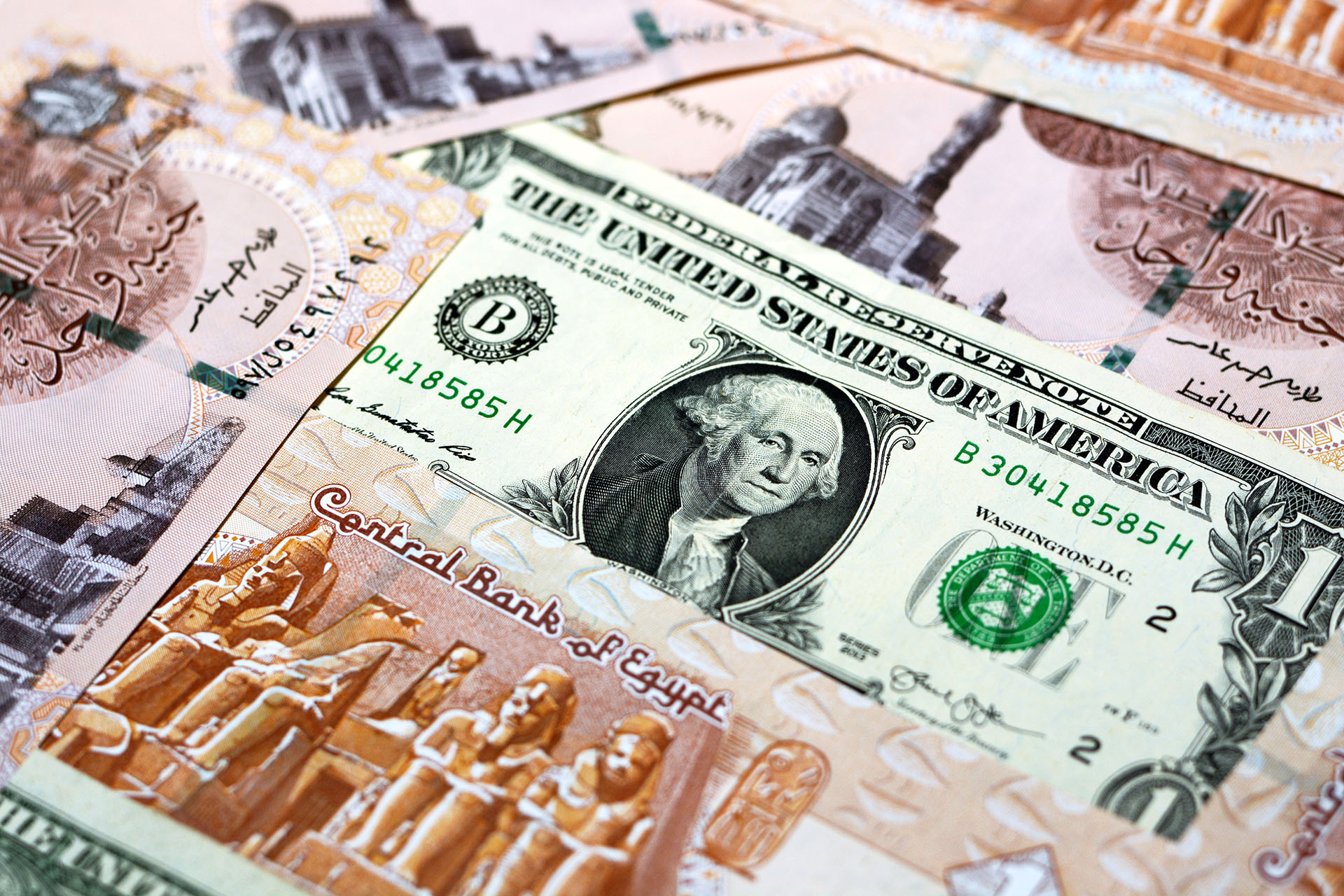The pound continues to decline against the dollar, as it has lost about 50% of its value since 2022 (Shutterstock)
The pound continued to decline against the dollar in the parallel market in Egypt, with the dollar exceeding the level of 60 pounds, despite its decline slightly from the levels it recorded last Thursday, traders told Al Jazeera Net, amid rumors about an imminent floatation of the currency.
The dollar recorded in the parallel market more than 60 pounds for sale and above 59 pounds for purchase, according to traders from outside Egypt.
While for traders in the parallel market from within the country, the dollar trades in the range of 60 pounds to the dollar if the transaction is carried out on an amount of up to one thousand dollars.
Official price
The official price of the dollar is still at about 31 pounds, with anticipation of a new float of the Egyptian currency soon, which the state needs to facilitate the first review of a loan program with the International Monetary Fund worth $3 billion, of which Egypt has obtained only one tranche since its approval in December 2022.
The Egyptian pound lost about 50% of its value against the dollar after Egypt devalued its local currency 3 times since March 2022 in light of an economic crisis and a severe shortage of dollar liquidity in the wake of the war in Ukraine.
In this context, a spokesman for the International Monetary Fund said yesterday evening that the Fund’s mission is in Cairo at the present time to discuss a loan from the Fund and a reform program.
He added that discussions are ongoing regarding additional funding to relieve Egypt from the pressures associated with the Israeli war on the Gaza Strip.
Discussions
The mission, headed by Ivana Vladkova-Höller, "will continue discussions regarding the first and second review of Egypt's reform program supported by the Extended Fund Facility. We will communicate at the end of the visit," the spokesman said in an emailed statement to Reuters.
The spokesman said that Jihad Azour, Director of the Middle East and Central Asia Department at the IMF, recently visited Cairo during the annual review period of the department’s regional offices, and met with the Egyptian authorities and concerned parties in the region.
Egypt was severely affected by Israel's war on the Gaza Strip, which severely affected tourist bookings and natural gas imports and led to attacks on shipping in the Red Sea, which subsequently affected the passage of cargo ships through the Suez Canal.
Last week, International Monetary Fund spokeswoman Julie Kozak told reporters that the additional financing was “critically important” to the success of the Egyptian program, but the potential value and expenses were being discussed.
The need to tighten fiscal and monetary policy is also being discussed.
Moody's
Moody's credit ratings agency changed its outlook on Egypt from "stable" to "negative", indicating the increasing risks represented by the continued weakness of the country's credit position amid the difficulty of rebalancing the macroeconomy and the exchange rate.
It was expected that continued access to official financial support from the International Monetary Fund would increase Egypt's ability to sustain debt, but "policy measures and external supports may be insufficient to prevent debt restructuring" given weak debt burden metrics, according to a statement by the agency.
"The significant increase in interest payments and increasing external pressures have complicated the macroeconomic adjustment process," Moody's said.
The agency expects that Egypt's record in implementing financial reform will help in obtaining more financial support from the International Monetary Fund.
Moody's affirmed the country's credit rating at "Caa1".
Source: Al Jazeera + agencies

